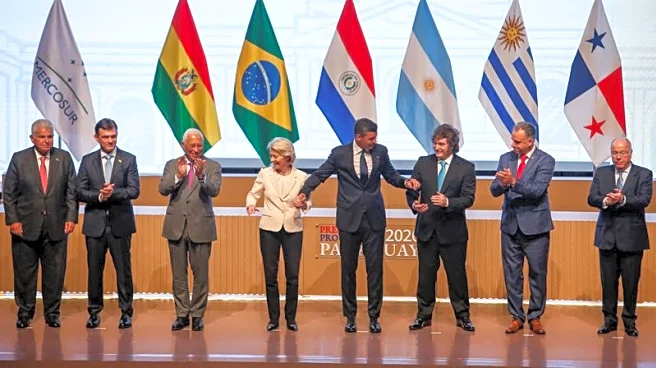Rapid Read • 7 min read
The relationship between China and Taiwan is rooted in the Chinese Civil War, with the nationalists fleeing to Taiwan after the communists won in 1949. The U.S. established a defense treaty with Taiwan in 1950, but normalized relations with the PRC in 1979, leading to the Taiwan Relations Act. Recent tensions have escalated, with China's military exercises around Taiwan following Nancy Pelosi's visit, seen as a provocation by Beijing.
The historical and geopolitical dynamics of U.S.-China-Taiwan relations have significant implications for regional security and international relations. Taiwan's strategic importance in the global supply chain, particularly in technology and manufacturing, makes it a critical player in international trade. The geopolitical dynamics influence U.S. policy in the region, as Taiwan's security and economic interests align with American strategic goals. The situation also highlights the broader challenges in managing cross-Strait relations and maintaining peace in the Asia-Pacific region.
AD
Taiwan may continue to strengthen its defense capabilities and forge closer ties with the United States to counter China's pressure. The international community, especially tech-dependent countries, will closely monitor the situation due to Taiwan's pivotal role in semiconductor production. Future developments may include increased diplomatic efforts to stabilize cross-Strait relations and ensure Taiwan's economic and political security.
The evolving identity of Taiwanese people, increasingly identifying as 'Taiwanese' rather than 'Chinese,' plays a crucial role in the island's political stance. This shift in identity influences Taiwan's domestic policies and its approach to international relations, adding complexity to the geopolitical landscape.
AD
More Stories You Might Enjoy










